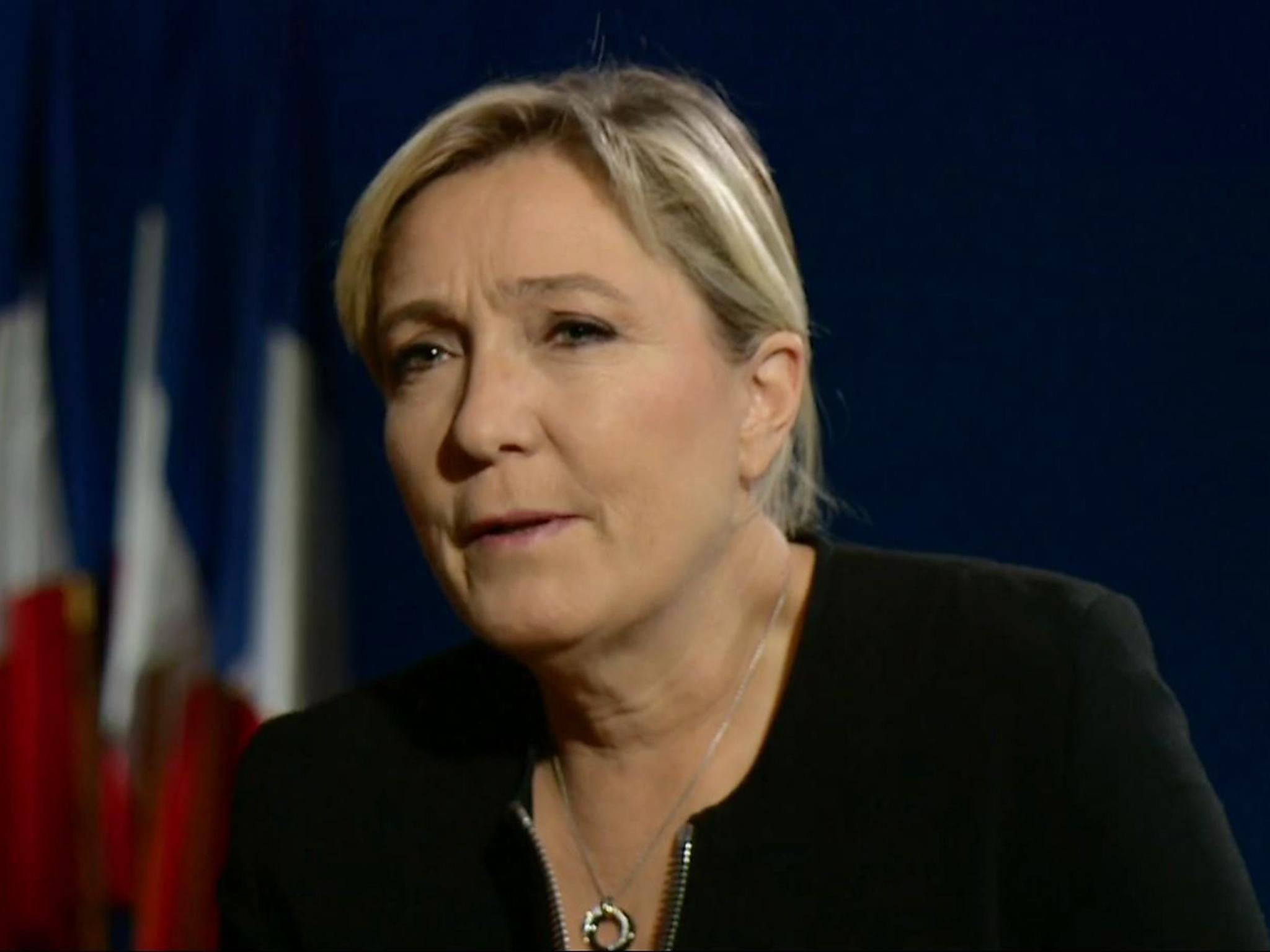How Marine Le Pen could become the next French president
The Front National leader is feeling confident after Brexit and Trump

Your support helps us to tell the story
From reproductive rights to climate change to Big Tech, The Independent is on the ground when the story is developing. Whether it's investigating the financials of Elon Musk's pro-Trump PAC or producing our latest documentary, 'The A Word', which shines a light on the American women fighting for reproductive rights, we know how important it is to parse out the facts from the messaging.
At such a critical moment in US history, we need reporters on the ground. Your donation allows us to keep sending journalists to speak to both sides of the story.
The Independent is trusted by Americans across the entire political spectrum. And unlike many other quality news outlets, we choose not to lock Americans out of our reporting and analysis with paywalls. We believe quality journalism should be available to everyone, paid for by those who can afford it.
Your support makes all the difference.Never one to miss a bandwagon when it passes, Marine Le Pen, leader of France’s far-right Front National, was one of the first European politicians to congratulate Donald Trump on his election victory. For the demagogic populist Le Pen, Trump’s win, like the Brexit vote, is the victory of the “people” against the “elites”.
Setting aside the ludicrous nature of anyone claiming the victory of a billionaire who inherited his riches as a blow against the established order, Le Pen’s intervention is important. France is facing its own presidential election in April and May of 2017 and Le Pen aims to win it.
On the face of it, her chances would appear slim. Unlike in the US, the French electoral system is designed to only deliver a president who is endorsed by an absolute majority of the electorate. But Le Pen’s rival parties are in disarray, which could ease her path, unless the electorate can pull together.
The system
There are two rounds of voting in the French presidential election – set two weeks apart. In 2017, the first round will be on Sunday 23 April, the second on Sunday 7 May.
An unlimited number of candidates can stand in the first round, providing they gather a certain amount of support from local parliamentarians. If one of them achieves an absolute majority in the first round (50 per cent plus one vote), then they are pronounced president. The fragmented nature of French politics means, however, that this has never happened since the system was set up in 1965. Even then, when the early opinion polls a month before the vote had Charles de Gaulle re-elected with 60 per cent of the vote, he was forced into a second ballot.

Only the first two placed candidates go into the second ballot. This run-off is to ensure precisely that the winner has the endorsement of the majority of voters who turn out. The French could not find themselves being governed by someone who did not obtain a majority.
There is every possibility that Le Pen will be ahead after the first round in April 2017 so the question is how much chance she has in the second round.
In the past, voters have united to prevent the far-right from winning the run-off, but France’s other main parties are failing to offer new faces for voters – and recently we have seen all too well what can happen when the establishment fails to address the discontent of the people. They are also consumed by their own problems.
The left appears to have collapsed, while right-wing voters are deeply divided about who their candidate should be. The Republican party and some of its centre-right allies are about to hold their first ever primary election to make this decision, with former president Nicolas Sarkozy and former prime minister, the septuagenarian Alain Juppé, the current front runners.
Le Pen’s discourse of “the same old faces and the same old promises” has found some traction against this backdrop. With seven more-or-less familiar figures fighting it out, the contest hardly has the look of new blood about it. It doesn’t help that Sarkozy has various investigations hanging over his head and that Juppé was stripped of the right to stand for election or hold office for two years in 2004.
United against the front?
Voters on the left could probably see themselves voting for Juppé if he ended up in the second round with Le Pen but the same is not necessarily true in a Sarkozy/Le Pen contest. They would find it much more difficult to rally to his cause to keep out the Front National than they did in 2002, when they flocked en masse to Jacques Chirac. For all his faults, Chirac never adopted the sort of hardline rhetoric Sarkozy later took up, nor did he share the latter’s neoliberal economic agenda. In the second round in 2012, Sarkozy drifted so far to the right that even some politicians in the centre today would have problems voting for him if he wins the primary.
Juppé’s challenge, on the other hand, will be to convince voters on the right that he is their candidate, and not one of some soft centre.

This, then, is one scenario Le Pen will be hoping for. But there is another. If, by some miracle, she finds herself in a run-off against the left, then we really will be in uncharted waters.
France’s left-wing voters have, on many occasions, shown themselves willing to vote for the right to prevent the Front National taking power – most recently in the second round of France’s regional elections in December 2015, when they blocked Le Pen and her niece Marion Maréchal-Le Pen from taking control of two regional assemblies. But there is no proof that voters on the right would do the same thing.
So can Le Pen win the French presidential election? Yes, she can.
This article was originally published on The Conversation (www.conversation.com). Paul Smith is an associate professor in French and Francophone studies at the University of Nottingham
Join our commenting forum
Join thought-provoking conversations, follow other Independent readers and see their replies
Comments